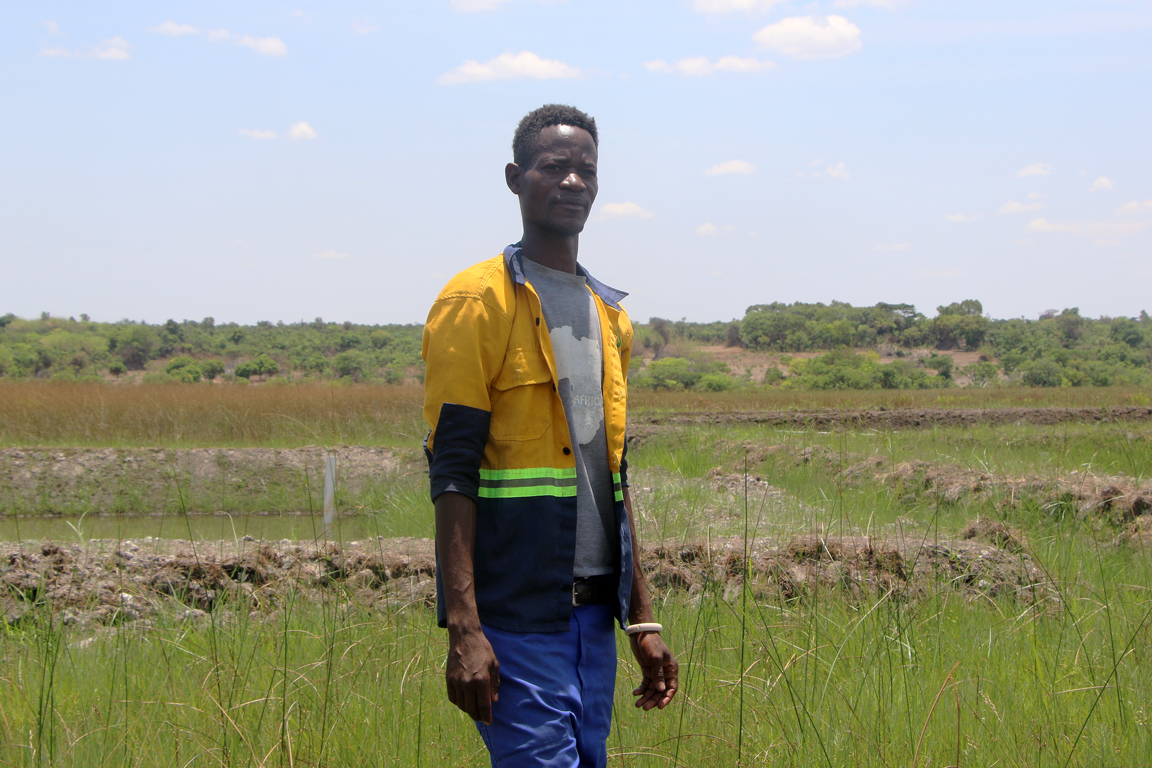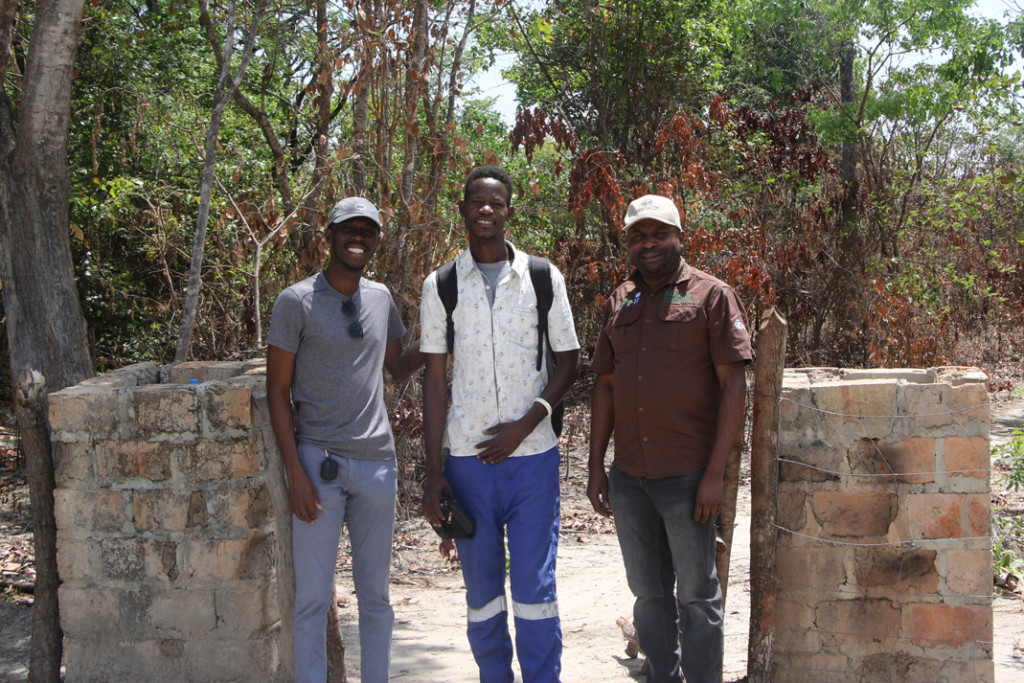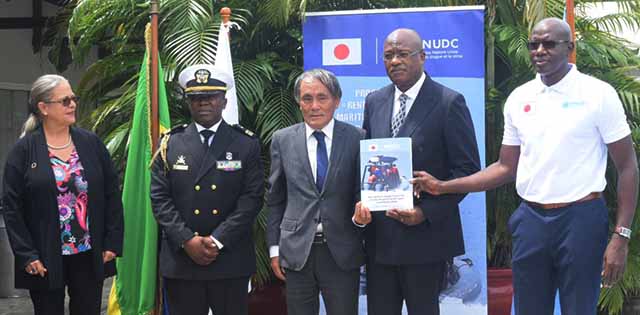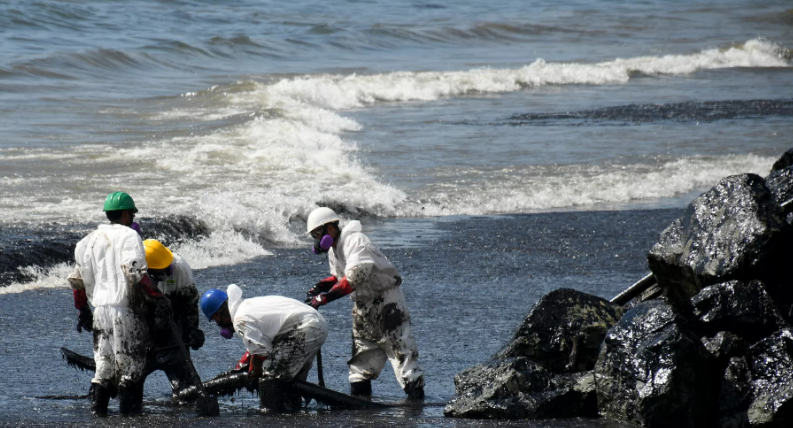Aubrain Lyavuka participated in the FAO and UNIDO OYA program, which prepares young people from the African continent to work in agriculture. He is currently derining excellent results and is developing his aquaculture farm in Ndola (Zambia).
Aubrain Lyavuka, a 30-year-old man, worked on a farm but wanted to reorient himself in fish farming. The opportunity presented itself to him when the Fisheries Directorate of Solwezi, Zambia, posted an announcement about aquaculture training.
Aubrain enrolled in the course organized as part of the « Perspectives for African Youth » (OYA) program, developed by the Food and Agriculture Organization of the United Nations (FAO) and the United Nations Industrial Development Organization (UNIDO), in collaboration with the Commission of the African Union. This program trains African youth in jobs in the agricultural sector, targeting in particular the agri-food sector and the development of entrepreneurship.
Aubrain participated in intensive training in Solwezi, in the northwestern province, alongside more than 60 other young aspiring agripreneurs. The trainees received theoretical teaching and were able to take care of feeges in four basins, two of which were built by them.
Through this field learning, Aubrain has acquired knowledge about essential aspects of aquaculture, such as basin ecosystem management, fish health and nutrition, breeding techniques and the rational use of water. In addition, sustainable farming practices have been put forward, in order to ensure respect for the environment. In particular, the trainees were made aware of the importance of not polluting waterways near aquaculture facilities.
« We were trained in fish farming, including pond construction techniques, and we received essential resources, namely fry and animal feed. This made me want to create my own aquaculture farm. We discovered that this activity was not only viable but also remunerative, « says Aubrain.
Through field learning, Aubrain has acquired solid knowledge of aquaculture, including essential aspects, such as basin ecosystem management, rational water use and respect for the environment.
After the OYA training, Aubrain participated in the 8th African Week of Agribusiness and Science, in Durban (South Africa). The young man met several leading figures in the sector and participated in farm visits in Durban. He understood that agricultural activity could be carried out on a larger scale and returned home with the desire to launch his own mixed farm.
Aubrain began to put into practice the technical and entrepreneurial skills he had acquired. With the money earned from the sale of his vegetables, he bought a plot of land in Ndola, Copperbelt province, to establish his aquaculture business. Seven basins were created there in the space of a few months. Aubrain now has nine, in which he raises tilapias with the help of two employees. Each pond can produce a maximum of 400 kilos of fish, twice a year. In addition to its fish farming, Aubrain also produces peppers, corn and okra.
Aubrain encountered difficulties, including lack of water and predators, such as birds and monitor lizards. Like other young entrepreneurs in Zambia, he also faced financial challenges: high interest rates, limited access to capital and the cost of animal feed. However, he reinvested his profits judiciously and looked for ways to develop his business in a sustainable way by controlling risks, for example by building the basins in stages. This success is partly due to the knowledge that Aubrain acquired during his training, but also to the continuous supervision and support of the Solwezi Fisheries Directorate from which he benefited after the training.
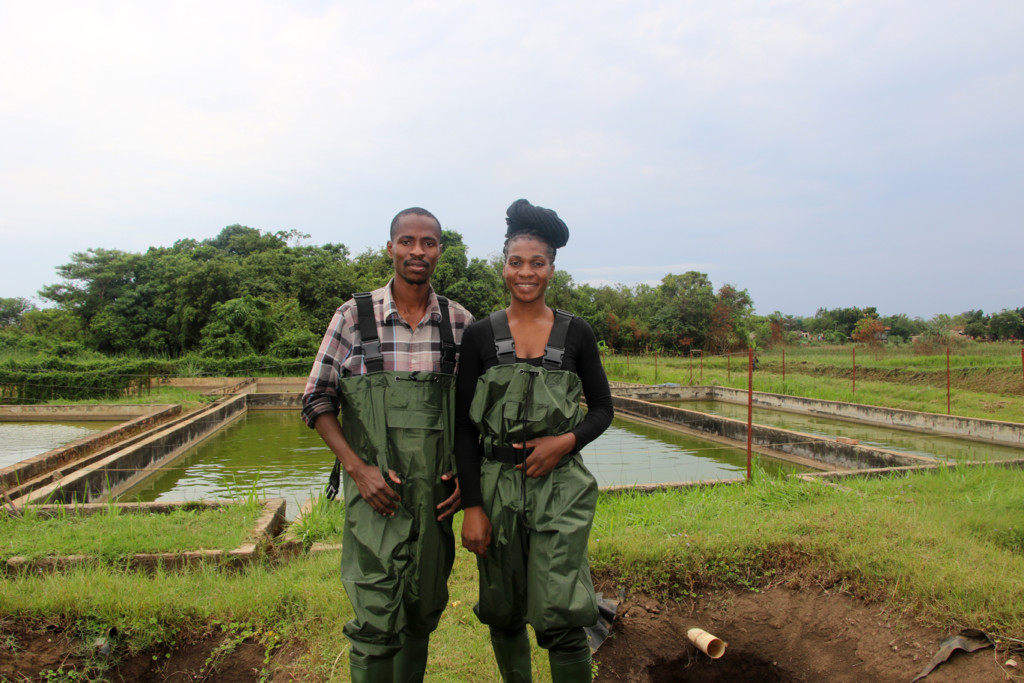
More than 60 young aspiring agripreneurs have received the training provided by FAO as part of the OYA program. They have been trained so that they can create their own business and make it prosper.
Focused on practical skills, market access, financial management and networking, the program offers comprehensive teaching to successfully create your business. This first step paves the way for the extension of the training activities of the OYA program throughout Zambia.
In the immediate future, Aubrain’s goal is to have 12 ponds to be able to harvest each month of the year, but his ambition does not stop there.
« I want to mechanize the business and set up a hatchery to ensure the growth and sustainability of my company, » he explains.
Source: FAO


